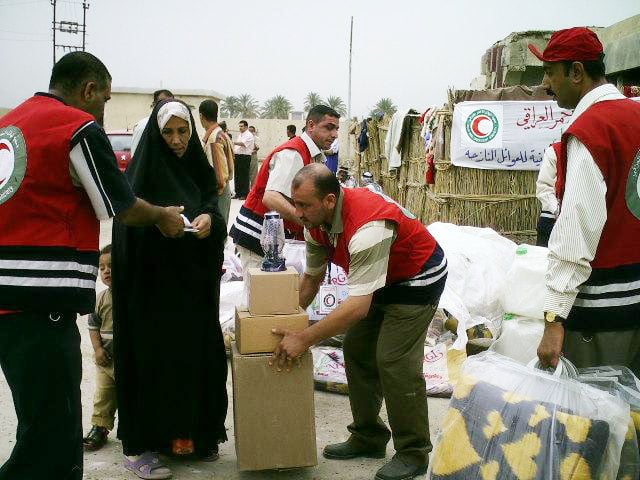The Iraqi government has adopted a number of measures aimed at encouraging the return of over four million internally displaced persons (IDPs) and refugees to their homes, a government statement has said.
The most significant measure is the one-off payment of 1.8 million Iraqi dinars (about US$1,500) to families who are illegally occupying the houses of other displaced families from a different sect and who want to return to their homes, the statement said on 16 July.
The aim is to help those families to rent other places, the statement said.
All IDPs or refugees willing to return to their houses will be paid one million Iraqi dinars (about $840), it said.
Another measure stipulates an additional monthly payment of 150,000 Iraqi dinars (about $145) to each internally displaced family which has not yet returned to its home. The payment will be for three months while the family is still displaced.
Other measures include helping Iraqi refugees in neighbouring countries with free airline tickets if they choose to return home, the free shipment of their belongings, and compensation for damaged property.
“These decisions are designed to facilitate and expedite the return of displaced families to their houses to boost the peaceful coexistence among Iraq’s different components in mixed areas,” the statement said.
According to the UN Refugee Agency (UNHCR), over 4.2 million Iraqis have fled their homes since the US-led invasion of Iraq in 2003. Of these, about 2.2 million are living as refugees in neighbouring countries - mostly Syria and Jordan - while the remainder are IDPs.
Measures welcomed
The new measures have been welcomed by some IDPs and analysts in Baghdad.
“These are really encouraging steps by the government,” said Abu Ali, a 55-year-old father of six who was displaced from Baghdad’s western Jihad neighbourhood in late 2006 and is now renting a house in central Harithiyah area.
Abu Ali, who refused to give his full name for security reasons, said another displaced family had occupied his house since early 2007 and had refused to pay him rent.
“This will help us a lot because the security situation has improved in our neighbourhood since the beginning of the year but this was an obstacle to us,” he added.
Adil Muhsin al-Baghdadi, a Baghdad-based analyst, said the government move was a positive one aimed at ending the displacement problem.
“The government has achieved some security gains and wants to maintain them especially with regards to the displacement problem,” al-Baghdadi, who runs the independent Hiwar Research Centre, said.
“But, of course, this will not end the displacement problem as its roots lie in political infighting, but at least it will be a positive factor,” he added.
sm/ar/cb
This article was produced by IRIN News while it was part of the United Nations Office for the Coordination of Humanitarian Affairs. Please send queries on copyright or liability to the UN. For more information: https://shop.un.org/rights-permissions





